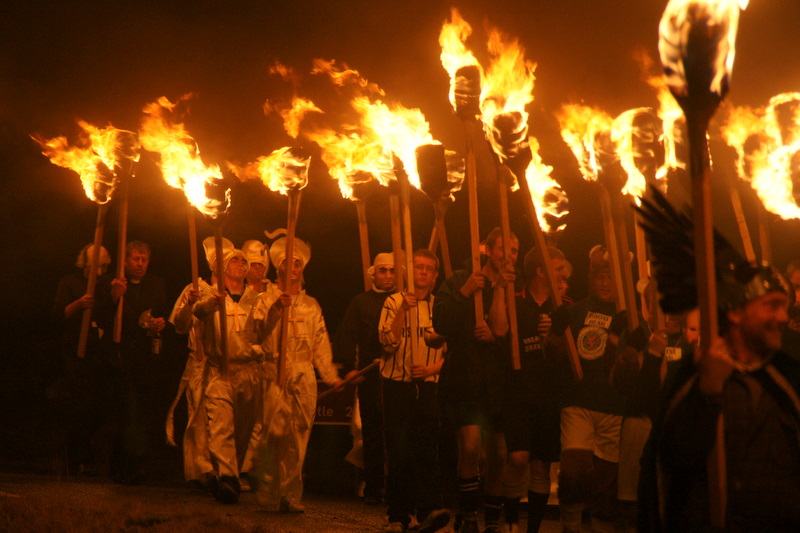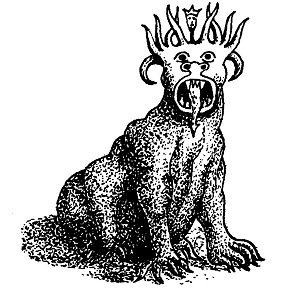When an atheist, agnostic, or general cynic wants to needle a Christian, especially around this time of the year, they either bring up the so called "pagan origins of Christmas," or they make some joke about how they themselves will be celebrating the Solstice rather than indulging in a phony celebration involving some bearded fat guy in a red suit. By dismissing Christmas in this way, they see themselves as somehow superior to those who are still willing to buy into such childish legends.
Now whether or not they are correct about the birth of Christ (viz. that Christ's birth was superficially placed over a pagan feast day), I cannot say with absolute certainly. What is indisputable is the fact that Christmas actually did succeed in replacing the former. Indeed, so universally beloved is this season that even when people no longer embrace the religion, they cannot bring themselves to deny the feast. However, what is more interesting to me is not simply that people still like Christmas after nearly two thousand years (which is amazing in and of itself), but just how Christmas has change people's perception of reality.
First of all, I have nothing against people celebrating Sol Invictus (i.e. the victory of the "unconquerable sun"). Let us together raise a toast to that giant orb in the sky that gives us life and light (though it feels a little superstitious to thank a celestial body and I thought that's what we were trying to avoid). In any case, celebrating and worshipping light and/or the source of that light, would seem natural enough. In fact, I would be surprised if such a practice wasn't as old as the hills... literally. Nevertheless, what cannot be ignored is just how the birth of Christ changed, and in fact truly elevated, this simple idea of the celebration of light coming into (or returning to) the world.
In the ancient world there was no "romance with the dark." The dark represented everything that we still recognize as fearful: death, blindness, evil, confusion, wickedness. The only kind of romance there may have been with the dark is the kind that humans still "enjoy" today. Indeed, some like the dark because it provides cover for their wickedness.
Yet what one comes into contact with at Bethlehem is an entirely different order of things. Indeed, the Nativity of Christ wasn't merely the celebration of the light dispelling the darkness, it was rather a celebration of the light coming in to make the darkness, as it were, a little more hospitable and cozy.
Formerly a tameless and terrifying beast, darkness in this context has ultimately become domesticated. The dark may still have its shroud of mystery (and no doubt it does), but now it is more the mystery of a starry starry night, an evening of moonlit musings, perhaps even carols by candlelight, or a Christmas Market in Germany. The warmth that radiates from that primitive barn at Bethlehem, still sheds light into the grotto of this dark world.
Still, what is most incredible about this particular version of Sol Invictus, is the method by which this "victory" comes to pass.
If the so called Unconquerable Sun actually entered into our midst, it would certainly conquer everything it came into contact with, but there would literally be nothing left to celebrate. And in the same manner, if God had chosen (at Bethlehem) to enter into the world in all his glory, no one could have endured it. However, he apparently opted to make a very different type of entrance, a method of conquest that to this very day still provokes a riot of hymns, poems, movies, and artistic renderings the absolutely run the gamut.
At a grotto in Bethlehem, he chose to light up the darkness, not as some terrifying autocrat might do, blazing and blinding humanity with his glory, but rather doing so like some tiny ember tucked into the heart of the world, slowly thawing out the hearts of humanity from the inside out. Indeed, as opposed to merely cursing the darkness, he chose instead to give it a little bit of ambiance and atmosphere to otherwise dreary state of affairs. He sought to prepare humanity for the dawn of his coming by giving it a "night light", temporarily shrouding His glory, if for no other reason that everyone might ultimately receive it.
Consequently, whenever we encounter a yard tricked out with an assortment of lawn ornaments, or a host of lights dangling from the rooftops, or even an adorable little tree all aglow with the joy of the season, we should (before all else) be reminded, not only of the brighter days to come, but of something still more marvelous yet- a warmth that should truly "make our spirits bright" (even in amidst of the darkness), a paradox of beauty and wonder that can only be summed in these stunning words of the Psalmist; "with Him even the darkness is not dark; the night is as bright as day, for darkness is as a light to you." Psalm 139:12











